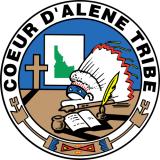Wetlands to Combat Drought: Strengthening Drought Preparedness on the Coeur d’Alene Reservation through Wetland Restoration and Monitoring

Wetlands mitigate the impacts of drought by absorbing and retaining excess water during wet periods and returning it to the water table during dry periods. Even though 65% of the wetlands once found within the Coeur d’Alene Indian Reservation have been lost, the cultural, ecological, and spiritual importance of wetland functions remain sacred to the Coeur d’Alene people.
In order to build Tribal capacity around drought resilience, the project team will integrate Tribal knowledge and wetland science through six restoration projects. The resulting restored wetlands will increase the capacity of wetlands to mitigate drought; provide habitat for culturally important plants, fish, and wildlife; and enhance cultural services. We will also implement a “Wetlands to Combat Drought Monitoring Program” to evaluate how wetlands help lessen the effects of drought over time.
This research was funded by NIDIS through the FY 2022 Coping with Drought Competition – Building Tribal Drought Resilience. For more information, please contact Britt Parker (britt.parker@noaa.gov) and Crystal Stiles (crystal.stiles@noaa.gov).
Research Snapshot
Mažeika Patricio Sullivan, Clemson University
Caj Matheson and Angelo Vitale, Coeur d’Alene Tribe Department of Natural Resources
What to expect from this research
There is an urgent need to build Tribal drought resilience that protects Tribal water resources in a proactive and culturally appropriate manner. Identifying wetlands (or future wetlands) that will disproportionately enhance drought resilience must be underpinned by both Western science as well as Indigenous knowledge. This project will work on six wetland restoration projects that will result in functioning riverine wetlands that will:
- Restore the capacity of wetlands to mitigate drought
- Enhance fish refugia
- Provide habitat for culturally important wetland plant and wildlife species
- Enhance cultural services.


